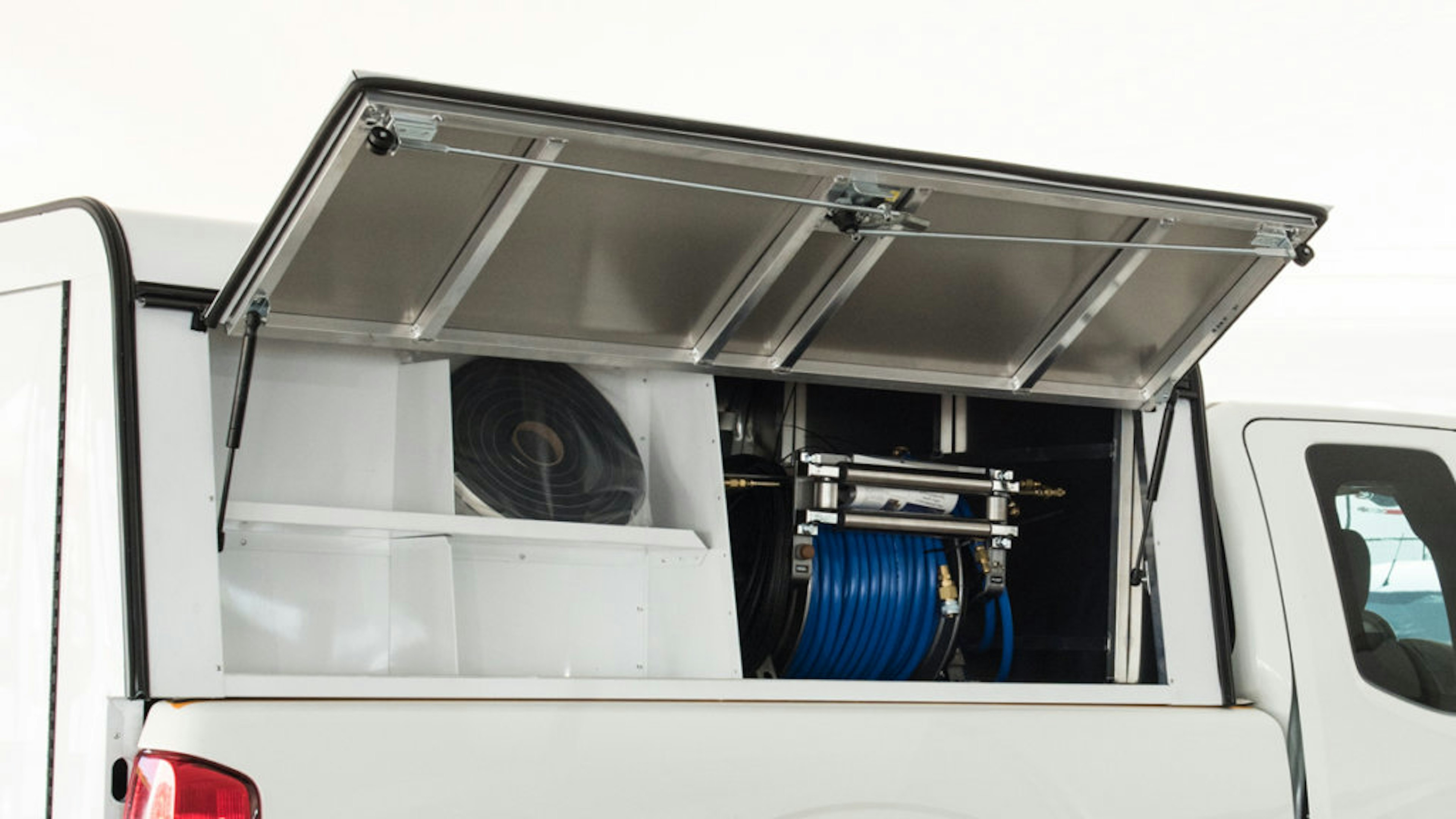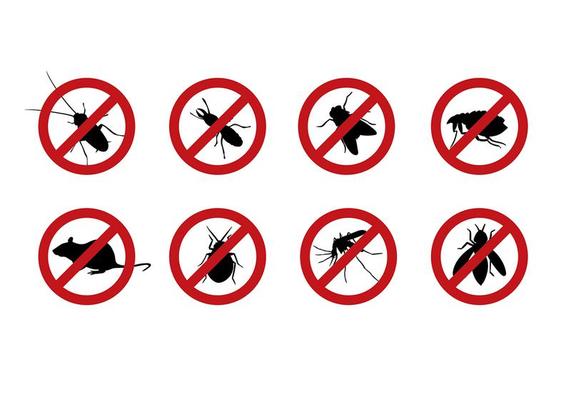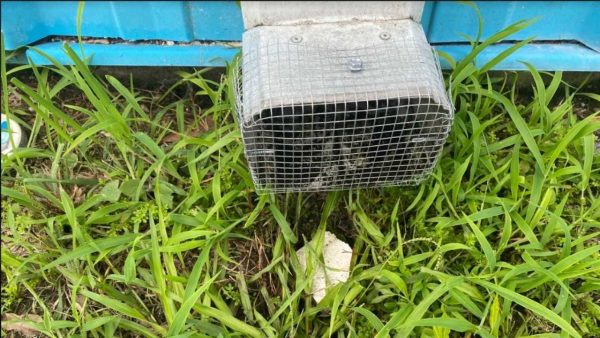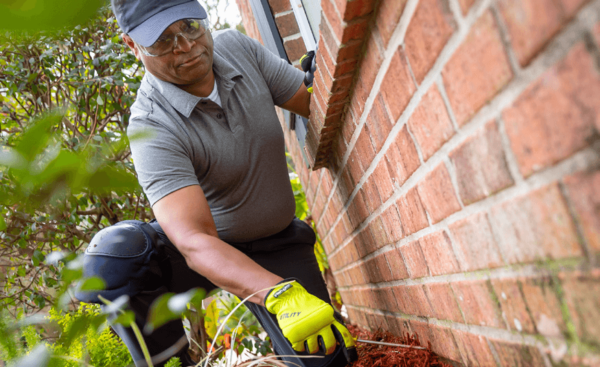Ant Exterminator Near Me: How to Exterminate Ants Fast and Efficiently
Uncover the Value of Insect Control in Keeping a Healthy And Balanced Setting and Therapy Methods

The Duty of Insects in Ecological Communities
Pests, often viewed exclusively as problems, play a diverse duty in ecological communities that is crucial for maintaining environmental equilibrium. They contribute dramatically to different eco-friendly procedures, including pollination, nutrition cycling, and pest control. Lots of insect types, such as butterflies and bees, are necessary pollinators for a vast range of plants, which in turn sustains biodiversity and food manufacturing.
Furthermore, bugs act as prey for countless killers, developing a critical web link in food webs. This interdependence makes certain the survival of different types and helps manage populaces within ecological communities (Termite treatment Port Charlotte). Additionally, decomposer bugs, such as certain beetles and fungi, are important in breaking down raw material, hence improving soil and facilitating vitamins and mineral recycling.
On the other hand, while insects can be useful, their overpopulation or invasion into non-native environments might interrupt these eco-friendly features. This intricacy underscores the relevance of understanding parasite dynamics, as reliable insect management approaches should take into consideration both their eco-friendly duties and possible influences on human activities. Balancing pest presence while minimizing damage is crucial for preserving the integrity of environments and making sure agricultural performance.
Health And Wellness Dangers Connected With Parasites
The existence of parasites in various settings expands past their environmental functions, as they likewise present significant health dangers to human beings and animals. Many pests, including parasites, rodents, and pests, are carriers of diseases that can have significant health and wellness implications. Rodents are understood to send hantavirus and leptospirosis, both of which can lead to severe breathing and kidney problems, specifically.
Pests such as mosquitoes and ticks are well known for spreading out vector-borne diseases like malaria, dengue fever, and Lyme disease. These ailments can result in high morbidity and mortality rates, particularly in susceptible populaces. In addition, bugs like roaches and bedbugs can intensify allergic reactions and bronchial asthma, adding to respiratory system troubles in individuals, particularly those with pre-existing problems.
In addition, the visibility of pests can lead to psychological tension and discomfort, impacting overall health. Contamination of food and surfaces by insect droppings and stays can cause foodborne ailments, highlighting the relevance of keeping hygienic problems. Understanding the wellness threats connected with insects is essential in recognizing the need of reliable parasite monitoring methods to protect human and animal wellness.

Advantages of Reliable Parasite Control
Efficient bug control is essential for maintaining a risk-free and healthy setting, as it constantly mitigates the countless risks associated with parasite invasions. One of the primary advantages of effective parasite administration is the reduction of wellness risks.
In addition, efficient insect control safeguards residential or commercial property and frameworks from damage. Several insects, like termites and woodworker ants, can cause extensive architectural damages that might need costly repair services. By proactively managing these house owners, businesses and infestations can protect their investments.
An additional substantial advantage is the enhancement of general top quality of life. A pest-free environment adds to mental well-being and lowers stress and anxiety related to infestations. Furthermore, efficient bug control cultivates a safer environment for children and animals, making certain that homes remain sanctuaries without disease-causing organisms and damaging chemicals.
Common Bug Control Methods

In the world of parasite administration, various strategies are utilized to deal with infestations properly. These techniques can be generally classified into three main strategies: cultural, mechanical, and chemical controls.
Cultural control includes modifying practices to decrease bug survival, reproduction, and establishment. This may consist of crop rotation, correct hygiene, and habitat adjustment, which collectively develop an environment less for pest proliferation.
Mechanical control utilizes physical methods to eliminate insects (Termite treatment Port Charlotte). Methods such as vacuum cleaners, obstacles, and catches are commonly used to directly remove parasites from a location. This approach is particularly reliable for managing rodents and insects without the use of damaging chemicals
Chemical control entails the application of pesticides to handle pests. These compounds can be classified right into pesticides, herbicides, and fungicides, each targeting certain sorts of bugs. It is vital to utilize these chemicals sensibly, adhering to safety standards and laws to decrease potential harm to non-target varieties and the setting.
Each bug control method has its restrictions and advantages, and usually, an incorporated technique incorporating multiple techniques produces the very best cause keeping a pest-free setting.
Lasting Insect Management Practices
Lasting bug administration techniques include a range of approaches made to reduce ecological impact while effectively controlling insect populations. These practices focus on the use of eco-friendly methods over chemical pesticides, thereby decreasing the threat of injury to non-target Learn More Here species, consisting of advantageous pests, wildlife, and human beings.
Integrated Bug Administration (IPM) is a keystone of lasting techniques, combining biological, social, mechanical, and chemical tactics to handle parasites. Biological control includes presenting natural predators or parasites to subdue pest populations. Cultural techniques, such as plant rotation and polyculture, interrupt pest life process and improve community strength.
Mechanical techniques, such as catches or obstacles, can effectively avoid bug accessibility without chemical intervention. Additionally, keeping healthy and balanced ecosystems with appropriate soil administration, plant health and wellness, and biodiversity can normally alleviate parasite concerns.
Education and recognition are essential parts, encouraging people and areas to identify bug hazards early and apply preventive measures. Termite treatment Port Charlotte. By fostering a holistic approach that stabilizes parasite control with eco-friendly stability, sustainable insect administration techniques not just shield plants and frameworks but also add to a much healthier atmosphere for future generations
Final Thought

Comprehending the health threats connected with pests is critical in identifying the requirement of reliable bug management methods to protect animal and human health and wellness.
Reliable insect control is essential for preserving a secure and healthy and balanced setting, as it constantly mitigates the many risks connected with parasite invasions.Integrated Parasite Management (IPM) is a foundation of lasting practices, integrating organic, cultural, mechanical, and chemical techniques to manage pestline insects. By recognizing the role of insects, identifying associated health and wellness threats, and using diverse treatment methods, a lasting method to pest mice control management can be attained. Integrated Insect Administration (IPM) highlights an all natural approach that alleviates injury to useful microorganisms while effectively regulating pest populations.